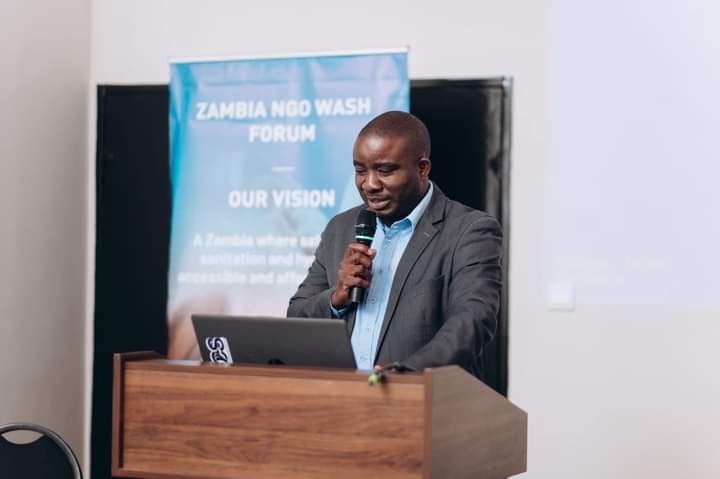
Lusaka, Wednesday (May 29, 2024)
Zambia NGO WASH Forum is concerned with the current number of menstrual hygiene products that are not eco-friendly.
Forum Board Chairperson, Marlon Phiri, said products that are not eco-friendly are not good for the planet as they are non-biodegradable.
Mr Phiri said this in a speech read on his behalf by Forum Board Member, Mubu Kalaluka, during the World Menstrual Hygiene Day, Tuesday, under the theme ‘Together for a Period-Friendly World’.
The Zambia NGO WASH Forum Board Chairperson said there is need to join forces to break the silence surrounding menstruation and advocate for a world where everyone, everywhere, can manage their periods with dignity and without fear.
“This year’s theme, “Together for a Period-Friendly World”, underscores the importance of collective action. We cannot achieve menstrual equity alone. It requires collaboration between governments, NGOs, civil society organizations, the private sector, and individuals like yourselves. Let’s also acknowledge the connection between menstrual health and hygiene, and the environment we all share. Many of the disposable menstrual products are not eco-friendly. These products are often made from non-recyclable and non-biodegradable materials. This means their lifecycle, from production to disposal, can harm our planet,” he said.
Mr Phiri said the increasing demand for non-biodegradable products, particularly in developing countries, such as Zambia creates a challenge for menstrual waste management.
“Our country is currently experiencing one of the worst climate change crises which is now a growing threat to already limited water, sanitation and hygiene services. For millions of Zambians, especially school children and girls in this case a reliable water supply and adequate toilet could be the difference between coping and not coping with the changing climate,” he said.
Meanwhile, Zambia NGO WASH Forum National Coordinator, Bubala Muyovwe – Mumba said the WASH Forum gathered some of Zambia’s brightest minds to discuss the state of menstrual hygiene management (MHM) in Zambia for two days.
“We shared best practices, confronted challenges, and identified exciting opportunities to move forward,” she said.
Ms Mumba said while some schools provide emergency pads, a clear gap exists in coordinated efforts from different sectors adding that there is need to bridge the gap to tackle the taboos, cultural norms, and financial limitations that prevent many from accessing menstrual products.
“Girls and women with disabilities face even greater obstacles, lacking access to both services and knowledge about MHM. This is an area where we must dedicate increased focus and resources. Let’s be honest – the stigma around menstruation is still a reality. Sociocultural beliefs, economic limitations, and a lack of knowledge hold many back. The safe disposal of menstrual waste also poses a challenge, further compounded by cultural and religious beliefs. The situation in schools paints a mixed picture. Words like “worrisome,” “inadequate,” and “struggling” were used, highlighting the need for improvement. However, terms like “improving” and “inclusive” offer a glimmer of hope. The path forward is clear: Collaboration is key. We, as the WASH Forum, need to join forces with partners to address infrastructure challenges in schools. This means improved programming, enhanced engagement, and a focus on gender and social inclusion,” she said.

